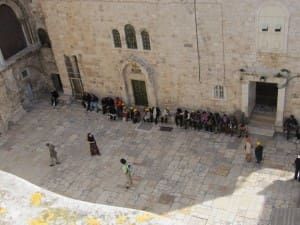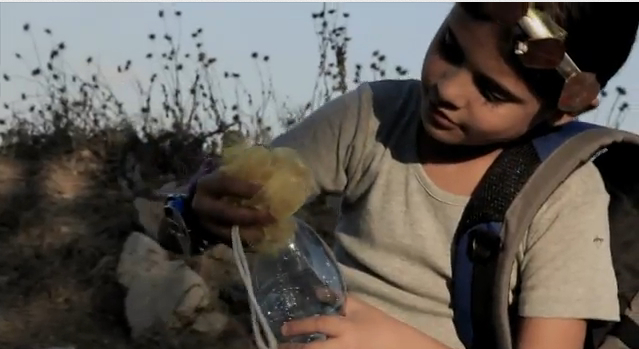In response to all the excellent comments about my post, “Checkpoint Etiquette,” I am thrilled to share this must-see video “Yala to the Moon” which I saw on Electronic Intifada.
The fact that such a joyful, creative, and hopeful film can be made here, despite the checkpoints (and all they symbolize), is answer to that oft-asked question, “How can you stand it?” Palestinians don’t just “stand it,” they create.
Enjoy! And if you like it, share a comment. (And if you don’t like it, please get some help!)
Is Jerusalem’s Old City Safe?
Last week I got an email from a friend of a friend. He’s coming to Jerusalem. First time. Among other things, he’s heard that the Old City of Jerusalem isn’t safe. Is it? Is the Old City safe?
I’m asked that question by nearly every single visitor I encounter.
The question makes me contort my face as if I’m being offered fried cow organs by someone I really don’t want to offend.

I posed the question to a friend of mine who just got her master’s degree in Jerusalem Studies. Her eyes rolled to the right as if she’d told her son four thousand times that his shirt is hanging in the closet but he just asked again where it is.
Is the Old City safe?
What do you think? Is the Old City safe? (I’ll post my answer soon.)
Visualizing Occupation: Freedom of Movement
Sincere thanks to Michal Vexler for permission to reprint this artwork freely and without restriction.

- « Previous Page
- 1
- …
- 50
- 51
- 52
- 53
- 54
- …
- 61
- Next Page »

